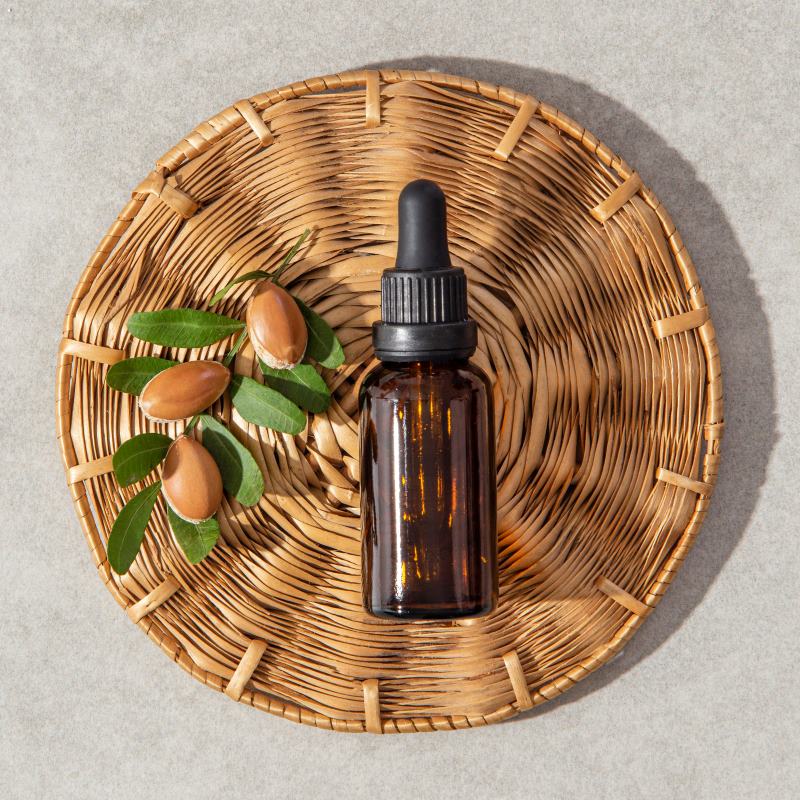The seeds of the Amazonian Carapa guianensis tree are used to make Krappa oil, also called Andiroba oil. This oil has long been valued in traditional medicine for its abundance of fatty acids, vitamins and special bioactive compounds. Today, the benefits of krappa oil for skin care, hair care and soap making are being rediscovered by do-it-yourselfers and cosmetic manufacturers.
This blog post defines krappa oil, discusses its main benefits and explains how to use it in homemade soaps, creams and hair products. To safely take advantage of the natural power of krappa oil for skin care, krappa oil for hair and other uses, you’ll also find helpful tips and answers to frequently asked questions here.
What is krappa oil?
The seeds of the Carapa guianensis tree are used to make krappa oil, also known as andiroba oil, a naturally occurring vegetable oil. This tree is found mainly in Brazil, Suriname and other South American countries and grows in the Amazon forest. When extracted from the nuts that fall from the tree, the oil produces a golden to brown liquid with a slightly earthy, nutty scent. The composition of Krappa oil is what makes it so special. In addition to limonoids and triterpenes, it contains high concentrations of omega-3 and omega-6 fatty acids. These substances provide its soothing, protective and restorative properties. The benefits of Krappa oil for skin care, hair care and soap making are so well known because of its rich composition.
Krappa oil has been used for centuries by indigenous peoples in the Amazon for both medicinal and cosmetic purposes. It was used to massage aching muscles, soothe insect bites and soothe irritated skin. Its scent was also thought to help against mosquitoes. This traditional use shows that krappa oil benefits have long been recognized and the oil is considered a versatile natural remedy. Today, krappa oil is a sought-after ingredient in cosmetics and DIY beauty products.
Main ingredients of krappa oil
The power of krappa oil comes from its active ingredients:
- Omega fatty acids for hydration and barrier repair.
- Limonoids with antibacterial and anti-inflammatory properties.
- Triterpenes that help soothe and repair the skin.
These ingredients explain why krappa oil offers benefits for skin care, hair care and soap making, making it one of the most versatile oils for do-it-yourselfers.
Traditional versus modern use
Krappa oil was commonly used in the Amazon to treat insect bites, skin irritations and joint massage. For centuries, people have relied on this natural oil for its soothing properties.
The same properties are used in hair products, soaps and creams in today’s DIY beauty products. This shift of use into cosmetics highlights the longstanding reliance on krappa oil for skin care and its increasing use in eco-friendly, plant-based cosmetics.
Krappa oil for skin care
One of its main uses is krappa oil for skin care.
The fatty acids provide deep hydration, while the bioactive compounds soothe redness and irritation. DIY creams, balms and lotions often contain krappa oil to create formulas that are both rich and gentle.
When combined with natural oils from YouWish, such as almond or jojoba oil, krappa oil becomes even more effective. It supports the skin barrier, maintains elasticity and helps achieve a smooth and healthy appearance.
What makes krappa oil for skin care unique is that it addresses multiple skin problems at once. It not only moisturizes but also soothes, making it suitable for dry, sensitive or irritated skin. Even small amounts mixed into clay masks, hand creams or body butters can noticeably improve results. For DIY makers looking for effective natural formulas, krappa oil is a powerful basic ingredient that provides both care and protection.
Krappa oil for soap making
Another popular use is krappa oil for soap making. With its emollient and protective properties, it adds nourishment and character to handmade soaps. Both cold-pressed and melt-and-mold soaps benefit from krappa oil, which helps create a rich lather and leaves skin feeling smooth.
What makes krappa oil for soap making particularly valuable is the balance it brings to soap formulas. While coconut oil adds cleansing power and shea butter provides creaminess, krappa oil contributes anti-inflammatory properties and extra hydration. This makes soap less drying to the skin and more suitable for daily use. Even in small percentages (about 5-10%), krappa oil can noticeably improve the caring properties of a bar of soap.
The earthy scent of krappa oil can be softened or enhanced with fragrance oils from YouWish, allowing makers to create unique pieces of soap that smell appealing while maintaining their natural benefits. It also blends well with clays and exfoliants, offering additional customization options for DIY soap recipes. For makers who want to combine skin care with tradition, krappa oil for soap making offers a practical way to enhance soap formulas with natural effectiveness.
Krappa oil for the hair
DIY makers also appreciate krappa oil for hair. It nourishes the scalp, supports hair growth and helps reduce dryness and hair breakage. Krappa oil is used in shampoos, conditioners or masks and makes hair softer and shinier.
A simple DIY mask can be made by mixing krappa oil with coconut or argan oil. If you use this once a week, it conditions the scalp and strengthens the hair strands. With cosmetic-grade krappa oil from YouWish, you can easily make high-quality natural hair care products.
Another benefit of krappa oil for hair is its soothing effect on an irritated or flaky scalp. Thanks to its anti-inflammatory ingredients, it helps keep the scalp balanced and comfortable, making it a valuable ingredient for homemade formulas for sensitive skin or dry hair.
Practical tips for using krappa oil
- Always store krappa oil in a cool, dark place to preserve its quality.
- In skin care formulas, start with small percentages and build up slowly.
- Mix with YouWish fragrance oils to balance the inherent scent.
- Add coconut and olive oil to make homemade soap that will last.
- Perform a patch test before using the product more widely on the skin, especially with sensitive skin types.
- Condition your hair once a week without making it greasy by using crab oil in hair masks.
- Mix it with cocoa or shea butter to make luxurious body balms and creams.
- The active ingredients of krappa oil should not be heated to extremely high temperatures.
- Use emulsifiers in lotion or cream formulas to achieve a stable, silky texture.
Frequently asked questions about krappa oil
V1. Can krappa oil be applied directly to the skin?
Yes, but for optimal effect it is often combined with carrier oils. Especially for sensitive skin, this makes it softer and easier to apply.
V2. How often can I apply krappa oil to my hair?
The best treatment is a weekly scalp massage or hair mask. Regular use promotes scalp balance and gives hair a natural shine.
V3. Does krappa oil have a strong odor?
YouWish’s fragrance oils can help soften the subtle earthy scent. This allows you to personalize the scent of your homemade products.
V4. Can krappa oil be added to melt-and-mold soap?
Yes, even adding a small amount of crab oil to soap improves its foaming and nourishing properties. It also makes the soap feel more nourishing.
V5. Can crab oil be good for sensitive skin?
In most cases, yes, because of the soothing ingredients, but it’s smart to do a patch test first. That way you can be sure you are not reacting and can safely benefit from the soothing properties of the oil.
V6. How long does crappa oil stay good after opening?
Krappa oil usually stays good for up to a year if you store it in a cool, dark place. You can extend the shelf life by using an airtight container.
V6. Where can I buy krappa oil?
Buy Krappa oil from our shop.
Krappa oil of cosmetic quality
Krappa oil is a versatile, natural ingredient that supports both skin and hair health. Thanks to its combination of moisturizing, soothing properties and protective substances, krappa oil benefits are widely recognized in DIY cosmetics.
Whether you’re experimenting with krappa oil for skin care, enriching hair masks with krappa oil for hair or making handmade soaps with krappa oil for soap making, this oil adds real value to your projects. With cosmetic-grade krappa oil and other DIY supplies from YouWish, you can confidently create safe, natural and personalized products that highlight the best of nature.

